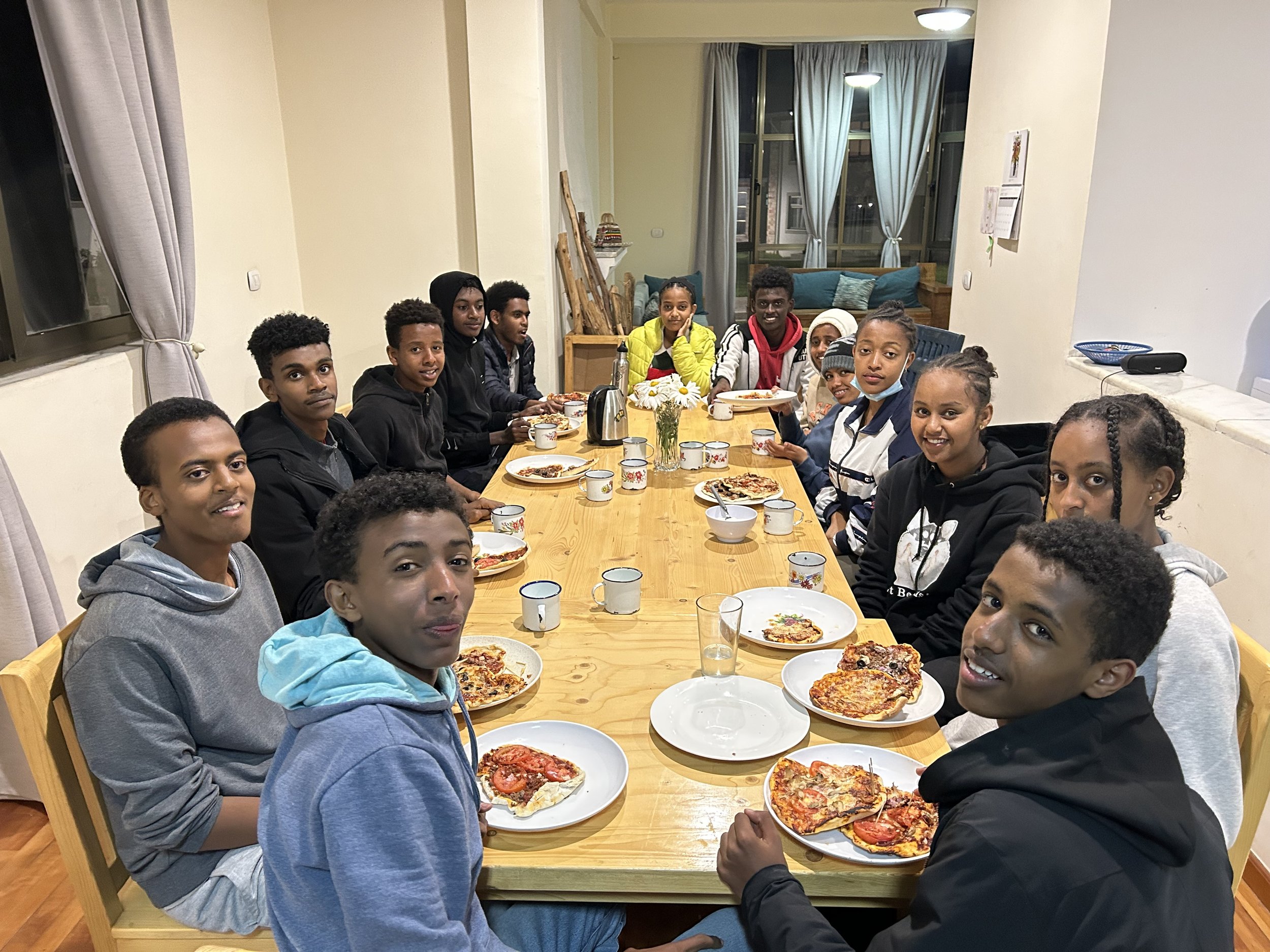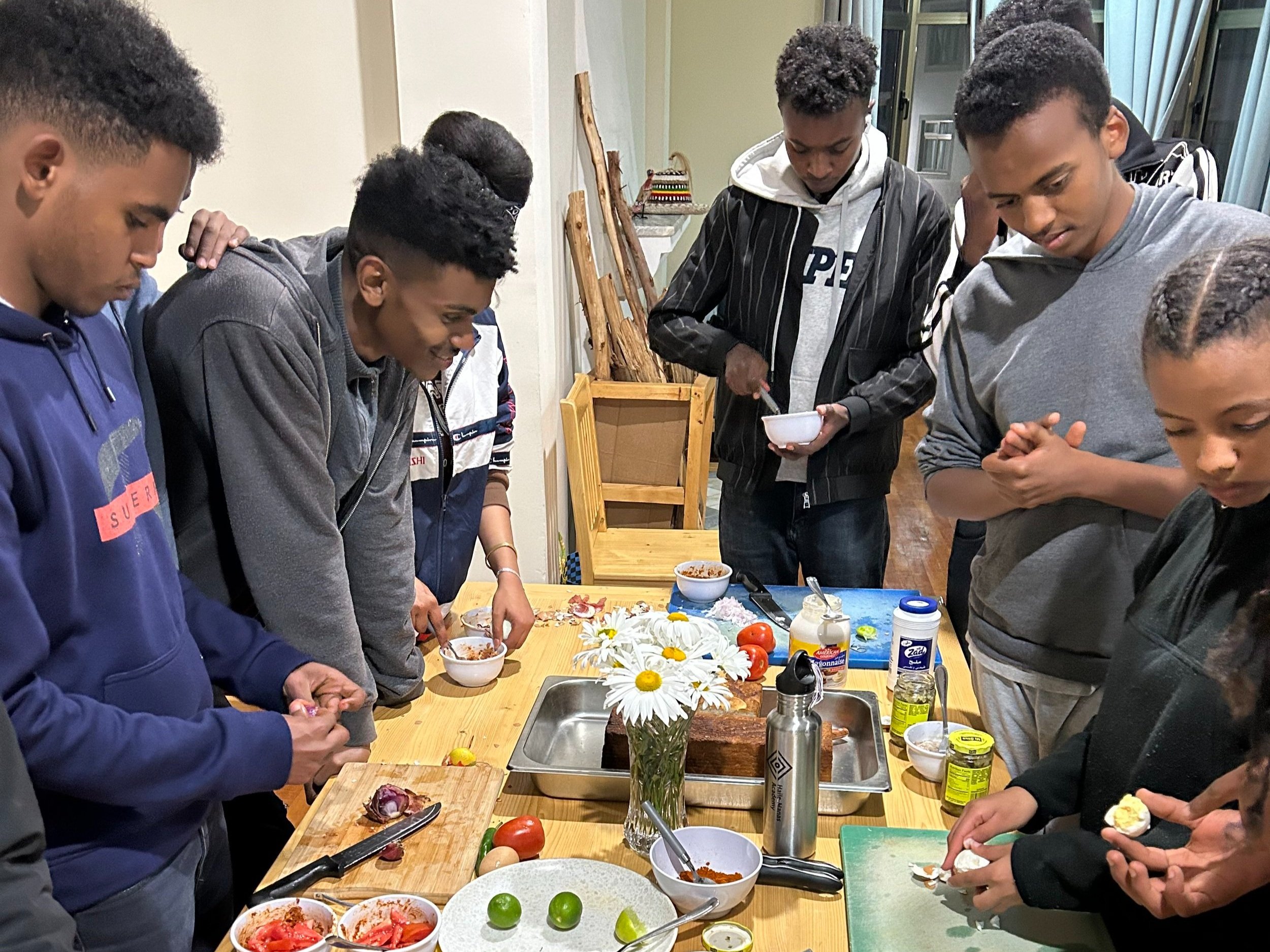Recipes for Life
Mark Hale was HMA’s Interim Head of School from 2022-2023.
Like many young adults, HMA students will soon head off to college, where they will need a range of life skills to thrive. Cooking is one such important life skill, one that can be both engaging and fun. Cooking as a team also teaches the importance of leadership and the value of followership. So, I started the “Cooking Club”—affectionately referred to by students as the “Eating Club”—which I hosted in my home on campus.
Cooking Club ran in the evenings from 7:15 to 8:10 pm, slotted in after dinner and before study hall. With only 50 minutes, we had the challenge of running a tight ship, but the students worked hard to maintain quality, communication and efficiency. Our rotating menu was a regular smorgasbord—everything from Ethiopian shiro to Italian bruschetta, donut holes to rice balls. Pizza night was particularly memorable. Each student made their own custom pizza, but the assembled pizzas usually weren’t done baking by 8:10. Students would rush out of Cooking Club to study hall, and I would finish baking them. Students would then run back to my house during their study hall break to frantically devour them. Talk about working for your food!
Cooking Club taught the students that every person takes on a different role on a team, each one as necessary as the next. Some students had worked with their moms in the kitchen and were pretty facile with paring knives. For others, this was the first time really handling ingredients and kitchen tools. Some didn’t know how to crack an egg, and it was fun watching them grow comfortable with this new skill. How hard do you hit the egg against the counter? Do you use a spoon to crack the egg? For those who know how to cook, you just grab an egg, crack it and move on, but that skill has to be taught and learned. Students learned how to chop and dice, and how to follow safety precautions. We learned which of the bunch were okay with messes and which were sticklers for clean spaces, and how to respect each other’s different methods.
As an educator, I know that every student is at a different place. Good teachers listen and watch and pre-assess, in every context, and try to shape the curriculum to meet the needs of each individual student. For Cooking Club, that didn’t mean teaching students different recipes. It meant helping them understand how they could bring their knowledge and skills to a given recipe and make creation of the dish a unique experience for themselves. Whether the student was a leader, supporter or anyone in between, by the time we shared our last meal together, each was proud of his or her contribution and their work as a team. It helps when the end result is delicious!



